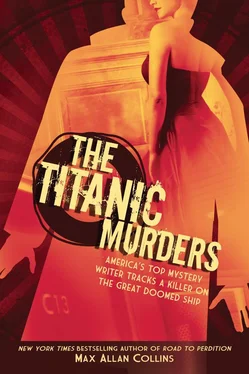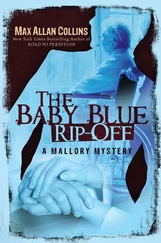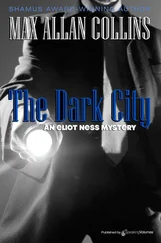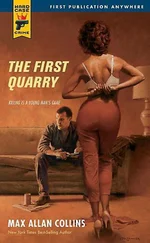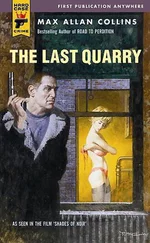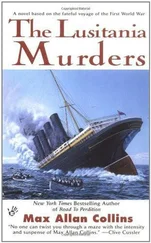Max Collins - The Titanic Murders
Здесь есть возможность читать онлайн «Max Collins - The Titanic Murders» весь текст электронной книги совершенно бесплатно (целиком полную версию без сокращений). В некоторых случаях можно слушать аудио, скачать через торрент в формате fb2 и присутствует краткое содержание. Жанр: Исторический детектив, на английском языке. Описание произведения, (предисловие) а так же отзывы посетителей доступны на портале библиотеки ЛибКат.
- Название:The Titanic Murders
- Автор:
- Жанр:
- Год:неизвестен
- ISBN:нет данных
- Рейтинг книги:5 / 5. Голосов: 1
-
Избранное:Добавить в избранное
- Отзывы:
-
Ваша оценка:
- 100
- 1
- 2
- 3
- 4
- 5
The Titanic Murders: краткое содержание, описание и аннотация
Предлагаем к чтению аннотацию, описание, краткое содержание или предисловие (зависит от того, что написал сам автор книги «The Titanic Murders»). Если вы не нашли необходимую информацию о книге — напишите в комментариях, мы постараемся отыскать её.
The Titanic Murders — читать онлайн бесплатно полную книгу (весь текст) целиком
Ниже представлен текст книги, разбитый по страницам. Система сохранения места последней прочитанной страницы, позволяет с удобством читать онлайн бесплатно книгу «The Titanic Murders», без необходимости каждый раз заново искать на чём Вы остановились. Поставьте закладку, и сможете в любой момент перейти на страницу, на которой закончили чтение.
Интервал:
Закладка:
Actress Dorothy Gibson-one of the twenty-eight persons in boat number seven, capacity sixty-five-sailed the Titanic to fifteen minutes of fame. One month after the sinking, a moving picture starring and written by Miss Gibson- Saved from the Titanic, in which the silent-film star’s costume was the very dress she’d worn that memorable night-appeared in theaters to huge crowds. It was her last success. She married film distributor Jules Brulatour, divorcing two years later (with a hefty $10,000 a year in alimony), dying in obscurity in Paris in 1946.
Official records list John Bertram Crafton and Hugh Rood as having gone down with the ship; neither body was recovered by the MacKay Bennett.
One of the enduring mysteries of the night the Titanic sank is whether Alice Cleaver behaved as a heroine, or a villain. Hudson Allison had left the family’s C-deck suite to find out what exactly was wrong; soon his wife Bess was in mild hysterics, and Alice Cleaver seized up baby Trevor into her arms, wrapped the nightgowned child in a small fur blanket, and assured the boy’s mother that she would not let the child out of her arms much less her sight.
Alice then rushed out, apparently passing Hudson in the hallway; but the stunned parent seemed not to recognize either Alice or his boy. The nanny hurried onto deck, where, with the help of steward William Stephen Faulkner, she made her way to lifeboat eleven. As she climbed into the boat, Faulkner held the child for her; rather than accept the child from the young man, Alice pulled him into the boat after her. Because he was holding a baby in his arms, this was allowed.
The Allisons-Hudson and Hugh and golden-haired Lorraine-were lost in the sinking; Lorraine was, in fact, the only First-Class child to die. Even as newspapers were praising the blunt-nosed nanny for her courage and quick thinking, the families of Hudson and Bess Allison accused her of an act tantamount to murder.
Mrs. Allison’s mother asserted that the Allisons had obviously stayed aboard the ship, searching for their baby, and missed their chance at a lifeboat. Space was the birthright of their gender for Bess and Lorraine, and Hudson Allison-with the baby in his arms-could just as easily stepped into that lifeboat as the young steward.
After all, Hudson Allison’s only crime was hastily accepting a last-minute replacement for the position of nanny, without sufficient time to check references. (His body was recovered but not his wife’s, or his daughter’s.)
Lending credibility to the theory that Alice Cleaver was more coward than heroine were the lies she told reporters, giving her name as Jane Andrews. Obviously, the nanny did not wish to see the glowing reaction of the press tainted by knowledge that the woman who saved the Allison baby off a sinking ship was a mother who’d thrown her own baby off a train.
Alice Cleaver lived out her life in North America, fading into obscurity, dying in 1984. What became of her relationship with William Stephen Faulkner-the only person she would let near baby Trevor, on the rescue ship Carpathia -is unknown.
Baby Trevor was raised by his aunt and uncle, George and Lillian Allison, and grew to manhood, only to die in his teens of ptomaine poisoning. His parents’ fortune became the object of a struggle between his aunt and uncle and a woman who claimed to be (but never was able to prove she was) his now grown-up sister, Lorraine.
May Futrelle, rescued in lifeboat nine, never remarried. She spent the rest of her life in Scituate, mostly in the home she’d shared with her husband. While their children’s education was well provided for, May felt a responsibility to pay back $17,000 in cash advances that had gone down on the ship, along with Jack’s half a dozen new “Thinking Machine” stories.
She oversaw the publication of her husband’s final posthumous works, as well as aggressively sought reprinting of his earlier work. The straightforward, journalistic style of Futrelle’s “Thinking Machine” stories allowed his wife to keep many of them in print, for many years; and of course “The Problem of Cell 13” became an acknowledged classic of the mystery genre.
Active with the Authors’ League of America and first chairwoman of the American League of Pen Women, May published a number of her own novels, and was a pioneer in conducting writers’ workshop-style clinics for beginning writers, leading to a CBS radio show in the thirties, Do You Want to Be a Writer?
Well into the 1960s, she was pushing the republication of her husband’s fiction-witness the bestselling 1959 Scholastic Book Club collection of “Thinking Machine” stories-and shortly before her death in 1967, May signed exclusive rights for radio adaptations of twenty-eight Futrelle “Thinking Machine” stories, many of which were presented on CBS Radio Mystery Theater. She is buried in St. Mary’s Cemetery in Scituate.
Throughout her life, as her daughter Virginia reported, May would carry out the ritual of tossing a bouquet of fresh flowers into the sea on the anniversary of the tragedy. The memories of that last night remained vivid and with her always.
Futrelle had come rushing into their stateroom, saying, “Get dressed at once-throw anything on. The boat is going down.”
She recalled the screams of women and shrill orders of officers on deck, “drowned out intermittently by the tremendous vibration of the Titanic ’s bass foghorn.”
Futrelle remained calm, telling May, “Hurry up, dear, you’re keeping the others waiting,” kissing her, then lifting her like a bride over the threshold and placing her into the lifeboat, one of the last to leave.
“There’s room,” May said frantically, looking about the boat as it began to lower. “Look! Come with me! There’s room!”
“I’ll be along later,” he said.
Her last memory of him, she carried with her-to that cliff, from which she tossed her flowers, and to her grave.
Their lifeboat had not been in the water for more than a few minutes when the Titanic made its final plunge. Over the years she came to question whether or not it was only her imagination…
… but she always swore that she’d seen Jack, standing, clinging to the rail with one hand.
And waving good-bye to her with the other.
Интервал:
Закладка:
Похожие книги на «The Titanic Murders»
Представляем Вашему вниманию похожие книги на «The Titanic Murders» списком для выбора. Мы отобрали схожую по названию и смыслу литературу в надежде предоставить читателям больше вариантов отыскать новые, интересные, ещё непрочитанные произведения.
Обсуждение, отзывы о книге «The Titanic Murders» и просто собственные мнения читателей. Оставьте ваши комментарии, напишите, что Вы думаете о произведении, его смысле или главных героях. Укажите что конкретно понравилось, а что нет, и почему Вы так считаете.
